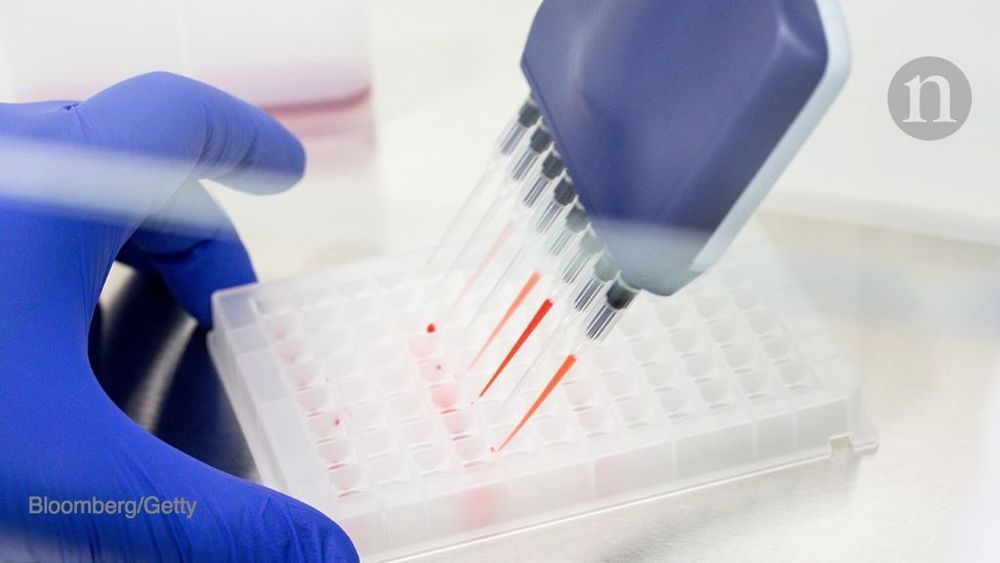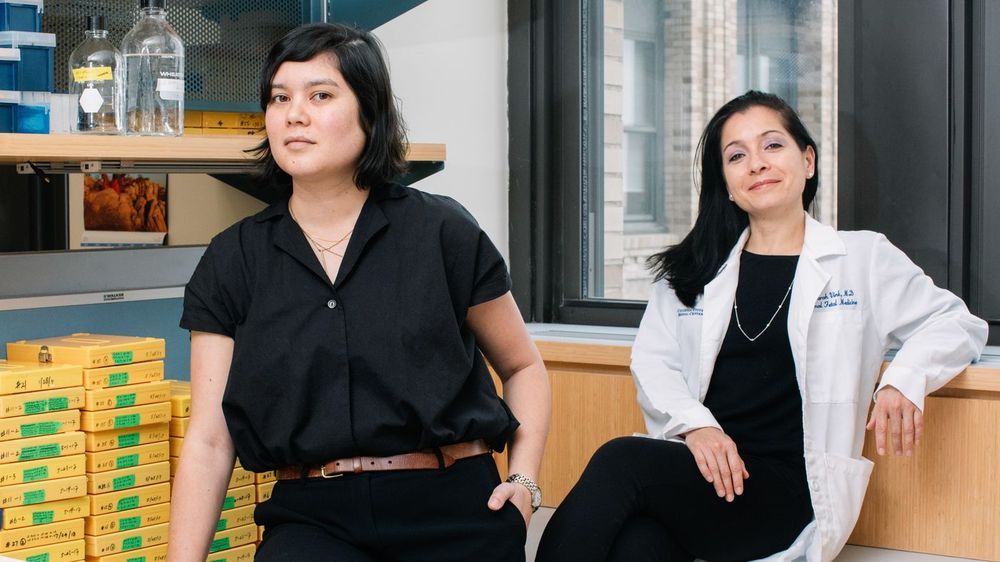Category: health – Page 414

Investors bet billions on health-care start-ups with paltry publication records
I remember the #DotCom crash all too well.
The publication record of health-care start-up companies doesn’t seem to matter to investors, according to an analysis of nearly 50 biomedical ‘unicorns’ — venture-capital-backed companies valued at more than US$1 billion. The analysis, led by health-policy researcher John Ioannidis at Stanford University in California, finds no correlation between a company’s market valuation and its publication record — defined as the number of peer-reviewed papers authored directly by a firm. That’s a cause for concern, the authors say.
Firms can achieve fêted ‘unicorn’ valuations without publishing much peer-reviewed science. Health-care start-ups can reach billion-dollar valuations without publishing in peer-reviewed journals, but skipping that step can catch them out.

Neuromelanin-sensitive MRI identified as a potential biomarker for psychosis
Researchers have shown that a type of magnetic resonance imaging—called neuromelanin-sensitive MRI (NM-MRI)—is a potential biomarker for psychosis. NM-MRI signal was found to be a marker of dopamine function in people with schizophrenia and an indicator of the severity of psychotic symptoms in people with this mental illness. The study, funded by the National Institute of Mental Health (NIMH), part of the National Institutes of Health, appears in the Proceedings of the National Academy of Science.
“Disturbances affecting the neurotransmitter dopamine are associated with a host of mental and neurological disorders, such as schizophrenia and Parkinson’s disease,” said Joshua A. Gordon, M.D., Ph.D., director of NIMH. “Because of the role dopamine plays in these disorders, the ability to measure dopamine activity is critical for furthering our understanding of these disorders, including how to best diagnose and treat them.”
Neuromelanin is a dark pigment created within dopamine neurons of the midbrain—particularly in the substantia nigra, a brain area that plays a role in reward and movement. Neuromelanin accumulates over the lifespan and is only cleared away from cells following cell death, as occurs in neurodegenerative disorders such as Parkinson’s disease. Researchers have found that NM-MRI signal is lower in the substantia nigra of people with Parkinson’s disease, reflecting the cell death that occurs in these patients.


Potential food allergens in medications
Imagine taking medicine oblivious to the fact that a food allergy can effect you taking simply medicine.
Certain substances derived from foodstuffs are used as excipients in drugs and vaccines for their pharmaceutical properties. Some of these food-derived excipients contain food proteins either intentionally or unintentionally as contaminants. As such, patients who have IgE antibodies directed against these food proteins are theoretically at risk for allergic reactions when exposed to the food proteins in the medications. However, such reactions are quite rare, usually because the amount of food protein is not present in a large enough quantity to elicit a reaction or because the particular protein is not a common allergen. When the food protein appears as an unintentional contaminant, the amount of protein, if any, that is present might be variable and might elicit reactions only from some lots of medication that happen to contain more of the food protein or illicit reactions only in patients who are exquisitely sensitive or happen to have IgE antibodies directed against a particular epitope in the contaminating protein. In most circumstances these medications should not be routinely withheld from patients who have particular food allergies because the overwhelming majority will tolerate the medications uneventfully. However, if a particular patient has had an apparent allergic reaction to the medication, allergy to the food component should be investigated as a possible cause. Even in this circumstance (ie, an allergic reaction to a medication in a patient allergic to a particular food and the presence of the food protein in the medication), the food protein would still have to be demonstrated to be causal by using appropriate testing because other allergens present in the medication could have been the cause or the medication might be capable of non–IgE-mediated mast cell degranulation.

Immune system discovery could lead to preventative drugs for allergies
The immune system is incredibly important, thanks to its role in fighting off dangerous invaders in our bodies. But sometimes it gets it wrong, targeting harmless proteins from things like nuts or dairy products and triggering allergic reactions that ironically can themselves be fatal. Now, researchers from Michigan State University have identified a mechanism that helps keep the immune system in check, potentially paving the way for drugs that could prevent allergic reactions before they start.
Exponential Medicine
Medicine is a unique and intensive four-day experience that gathers world-class faculty, innovators and organizations from across the biomedical and technology spectrum to explore and leverage the convergence of fast moving technologies in the reinvention of health and medicine.
Our home in San Diego at the iconic Hotel del Coronado is the magic X-factor in building connections and catalyzing deeper-than-usual conversation among faculty and participants. We make full use of one of America’s most beautiful seaside resorts; its history beautifully complements the future-focus of Exponential Medicine.
From talks given in a custom-designed theater with multiple configurations for listening and idea generation, to our hands-on technology lab, beachside morning yoga, dinners, and bonfires—Exponential Medicine is a high energy, bold redesign of a medical conference.


Selfies to Self-Diagnosis: Algorithm ‘Amps Up’ Smartphones to Diagnose Disease
Smartphones aren’t just for selfies anymore. A novel cell phone imaging algorithm can now analyze assays typically evaluated via spectroscopy, a powerful device used in scientific research. Researchers analyzed more than 10,000 images and found that their method consistently outperformed existing algorithms under a wide range of operating field conditions. This technique reduces the need for bulky equipment and increases the precision of quantitative results.
Accessible, connected, and computationally powerful, smartphones aren’t just for “selfies” anymore. They have emerged as powerful evaluation tools capable of diagnosing medical conditions in point-of-care settings. Smartphones also are a viable solution for health care in the developing world because they allow untrained users to collect and transmit data to medical professionals.
Although smartphone camera technology today offers a wide range of medical applications such as microscopy and cytometric analysis, in practice, cell phone image tests have limitations that severely restrict their utility. Addressing these limitations requires external smartphone hardware to obtain quantitative results – imposing a design tradeoff between accessibility and accuracy.